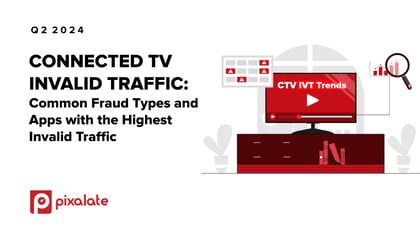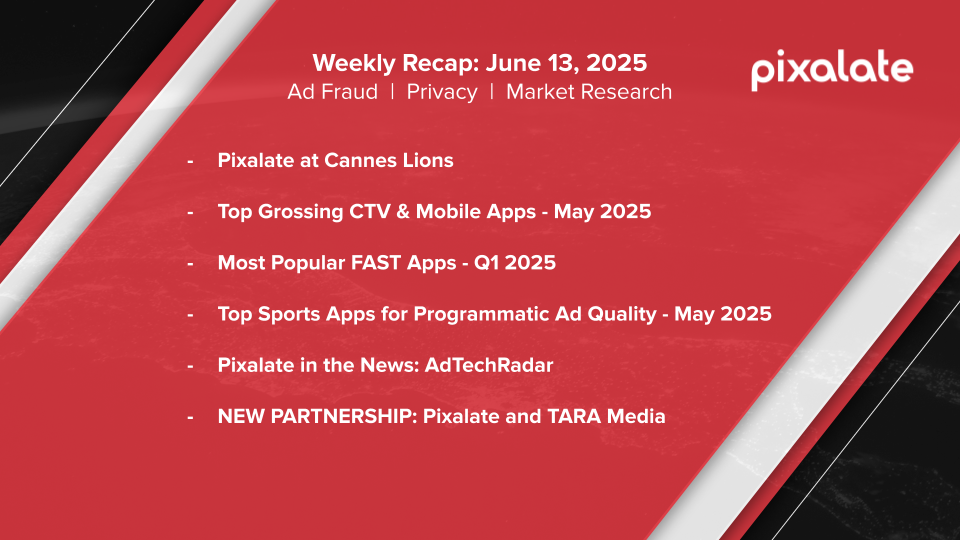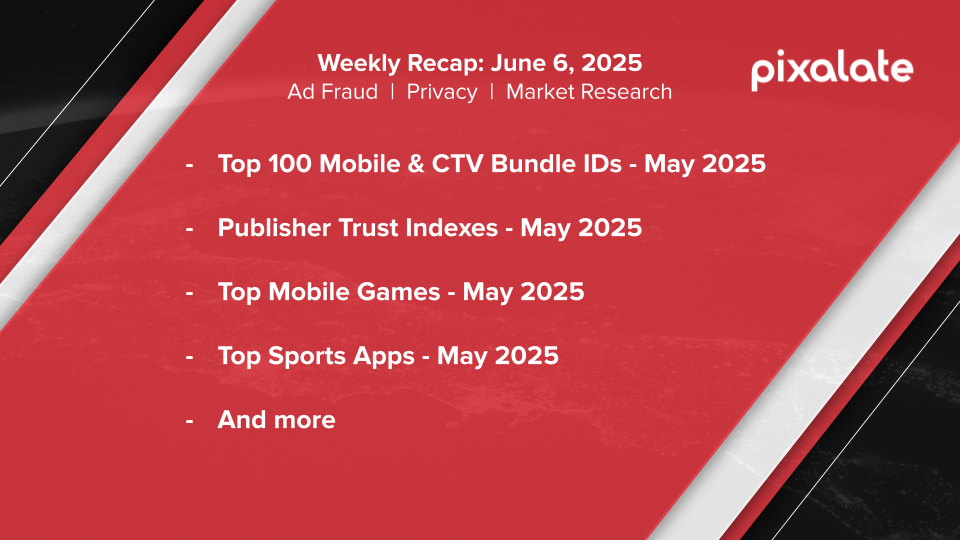This week's review of ad fraud and privacy in the digital advertising space:
Global Web Publisher Trust Indexes
%20-%20email%20and%20blog%20cover.png?width=420&height=236&name=June%202024%20Web%20Publisher%20Trust%20Index%20(PTI)%20-%20email%20and%20blog%20cover.png)
The June 2024 Web Publisher Trust Indexes (PTI) for North America, EMEA, APAC, and LATAM, ranking the top 100 websites for open programmatic ad traffic quality across each region. The Website PTI is published monthly, along with Pixalate’s other Publisher Trust Indexes, including the Mobile Publisher Trust Index and CTV Publisher Trust Index.




Global CTV Bundle ID Mapping Report

The the Q2 2024 CTV Bundle ID Mapping Reports for Roku, Amazon Fire TV, Apple TV, and Samsung Smart TV provides insights into some common challenges in Connected TV (CTV) advertising.




Top 10 CTV Ad Fraud Types

We released the Top 10 Connected TV (CTV) Ad Fraud Types in Q2 2024 for Amazon Fire TV, Roku, Apple TV, and Samsung Smart TV. The reports cover invalid traffic and ad fraud measured across CTV app stores, including the number of distinct apps impacted and the share of voice of each IVT type.




Delisted CTV Apps Report

We released the Q2 2024 Delisted CTV Apps Report, identifying applications that are no longer available for download from the Roku, Amazon Fire TV, Samsung Smart TV, and Apple TV app stores.

CTV and Mobile App Manual Reviews

Pixalate's Trust & Safety Advisory Board regularly publish manual reviews where they assess an app’s child-directedness:
You can search Pixalate's full catalogue of reviews in our CTV and Mobile App Review Page



%20-%20email%20and%20blog%20cover.png?width=420&height=236&name=June%202024%20Web%20Publisher%20Trust%20Index%20(PTI)%20-%20email%20and%20blog%20cover.png)



















